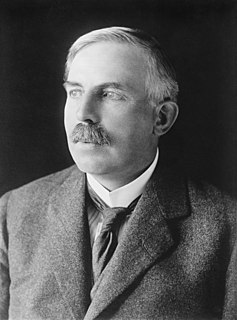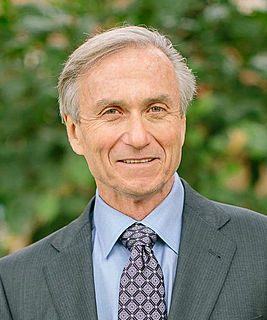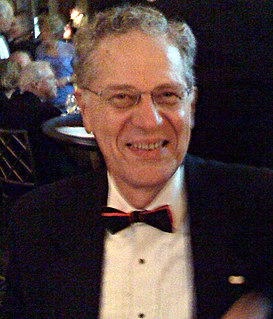A Quote by Ernest Rutherford
An alleged scientific discovery has no merit unless it can be explained to a barmaid.
Quote Topics
Related Quotes
So the history of discovery, particularly cosmic discovery, but discovery in general, scientific discovery, is one where at any given moment, there's a frontier. And there tends to be an urge for people, especially religious people, to assert that across that boundary, into the unknown, lies the handiwork of God. This shows up a lot.
Only by spiritual practice can we break through our karma and the effects of the causes we have made. Only then can we escape from them. It matters not whether you have acquired any merit. Merit is merit. Karma is karma. Nonetheless, if one practices the Quan Yin Method, one can be liberated regardless of having any merit or not. It is so logical, so scientific.
The routine of custom tends to deaden even scientific inquiry; it stands in the way of discovery and of the active scientific worker. For discovery and inquiry are synonymous as an occupation. Science is a pursuit, not a coming into possession of the immutable; new theories as points of view are more prized than discoveries that quantitatively increase the store on hand.
What struck me most in England was the perception that only those works which have a practical tendency awake attention and command respect, while the purely scientific, which possess far greater merit are almost unknown. And yet the latter are the proper source from which the others flow. Practice alone can never lead to the discovery of a truth or a principle. In Germany it is quite the contrary. Here in the eyes of scientific men no value, or at least but a trifling one, is placed upon the practical results. The enrichment of science is alone considered worthy attention.
Scientific discovery is a private event, and the delight that accompanies it, or the despair of finding it illusory, does not travel. One scientist may get great satisfaction from another's work and admire it deeply; it may give him great intellectual pleasure; but it gives him no sense of participation in the discovery, it does not carry him away, and his appreciation of it does not depend on his being carried away. If it were otherwise the inspirational origin of scientific discovery would never have been in doubt.
Many philosophers say it's impossible to explain our conscious experience in scientific, biological terms at all. But that's not exactly true. Scientists have explained why we have certain experiences and not others. It's just that they haven't explained the special features of consciousness that philosophers care about.



































